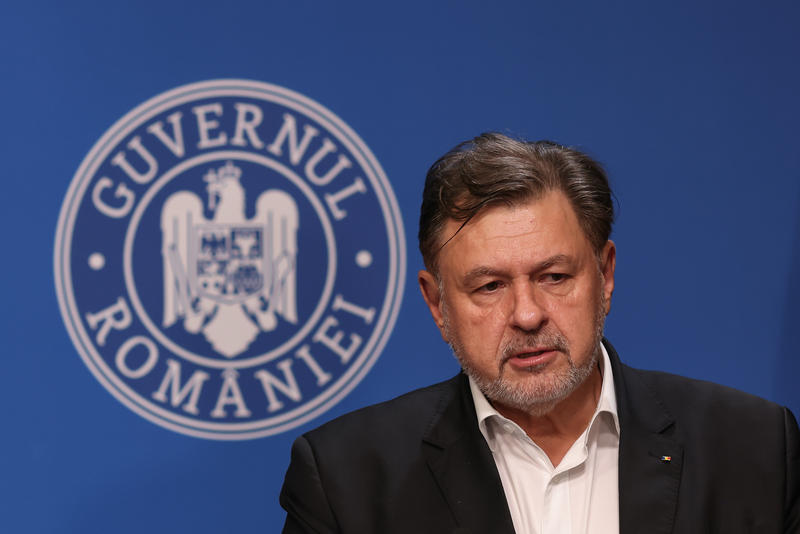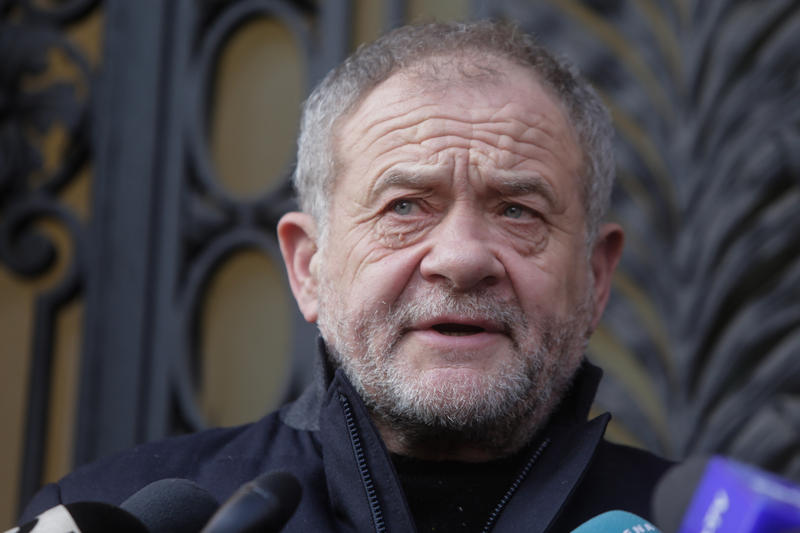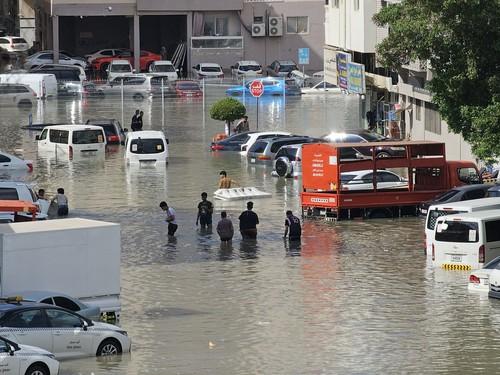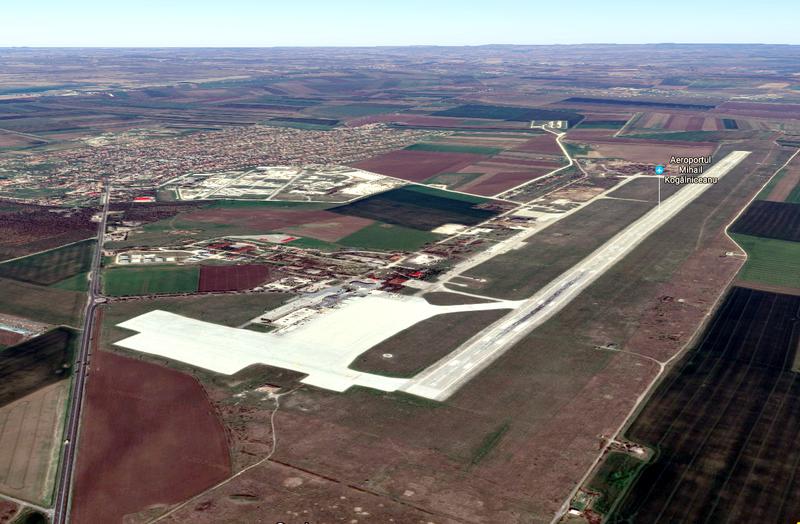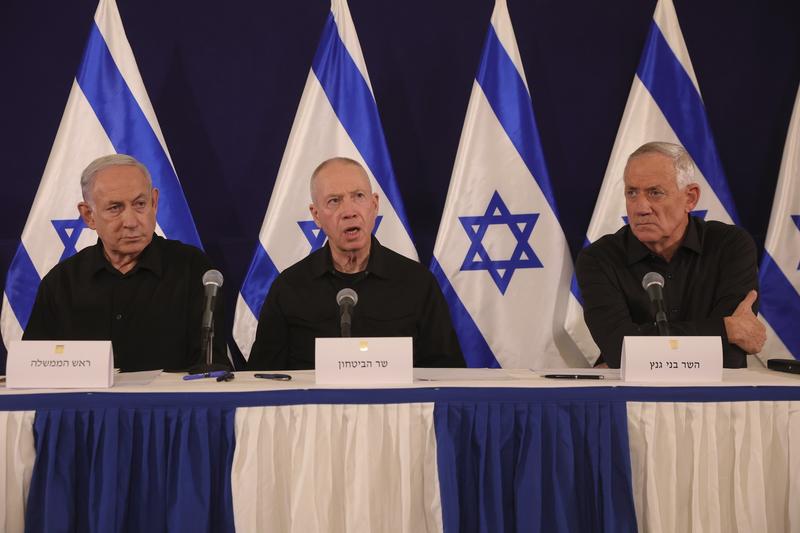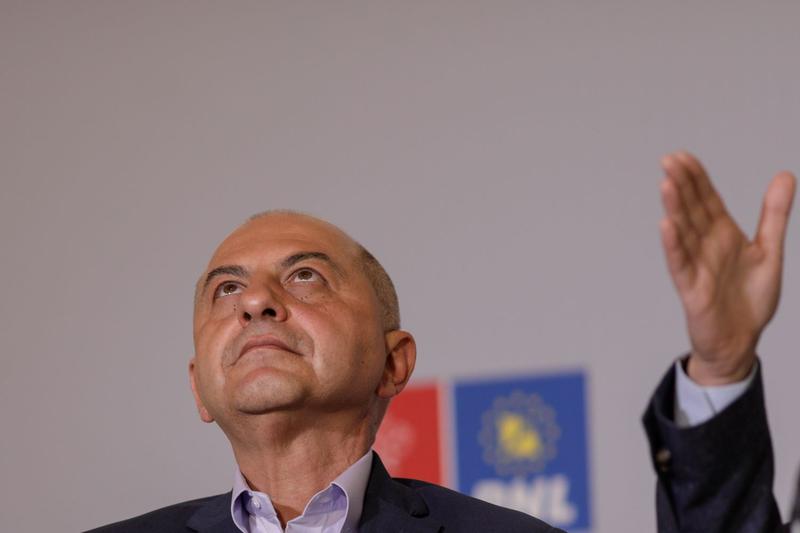Secretarul american de Stat, Rex Tillerson, a remarcat marti Romania pentru alocarea a 2% din PIB pentru aparare, alaturi de alte cateva state europene. Intr-un discurs programatic, seful diplomatiei americane a avertizat statele europene, mai ales "cele care au trait sub greutatea dictaturilor comuniste", ca "statul de drept si un guvern reprezentativ sunt forme fara fond atunci cand sunt rupte de o societate civila vibranta si de un respect profund pentru adevarurile evidente".
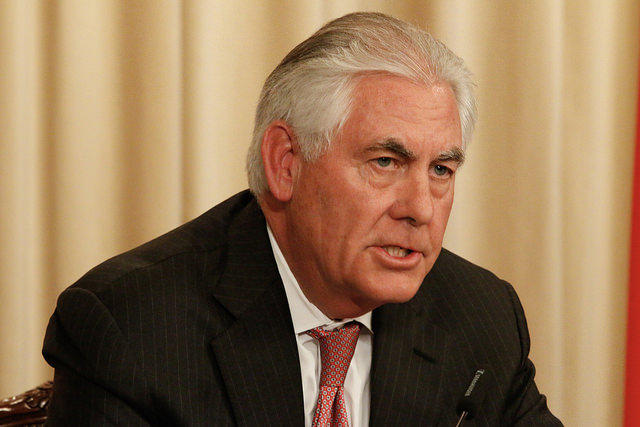
"SUA si toate statele europene, mai ales cele care au trait sub greutatea dictaturilor comuniste, pretuiesc libertatea ca natiuni care pot actiuno sub propria autoritate. Daca nu ne exercitam responsabilitatea, nu vom avea suveranitate. Daca nu avem suveranitate, nu vom avea libertate. Mentinerea suveranitatii inseamna si cultivarea virtutilor care o fac posibila. Natiunile libere trebuie sa protejeze societatea civila si grupurile, familiile si indivizii care o compun. Statul de drept si un guvern reprezentativ sunt forme fara fond atunci cand sunt rupte de o societate civila vibranta si de un respect profund pentru adevarurile evidente", a spus Rex Tillerson intr-un discurs despre relatiile SUA-Europa la Wilson Center, inainte de vizita sa in regiune.
"Stim ca popoarele europene au dezbateri despre viitorul lor. America nu va incerca sa impuna raspunsuri la aceste intrebari. Recunoastem faptul ca Europa e compusa din natiuni libere care, in marea traditie a democratiilor occidentale, trebuie sa fie capabile sa-si aleaga propriile cai", a mai spus Rex Tillerson in discursul citat.
Reamintim ca Departamentul de Stat al SUA a emis luni un comunicat oficial in care indemna Romania sa renunte la modificarea legilor justitiei, care, atrag atentia oficialii americani, "afecteaza lupta anticoruptie si independenta judiciara si slabeste statul de drept". Reactia a venit din partea lui Liviu Dragnea si Calin Popescu Tariceanu, presedintii celor doua camere ale Parlamentului scriind intr-un comunicat de presa comun ca "deciziile și voturile din Parlament se desfășoară în numele suveranității poporului și nu pot face obiectul niciunei forme de presiune".
Vezi aici discursul integral al lui Rex Tillerson:
Vezi transcriptul discursului in lb. engleza:
SECRETARY TILLERSON: Well, good morning, and thank you, Jane, for that very kind introduction, and also thanks to the Wilson Center for this opportunity to address you today.
The Wilson Center has made many important contributions to public policy over the years, and therefore it’s a very fitting venue for our discussion today on Europe, considering that 100 years ago this year the United States entered World War I under the leadership of President Wilson. While we tend to associate Wilson with spearheading America’s first major involvement in European affairs, I think it’s worth remembering that our commitment to Europe was earlier championed by a predecessor of his, Theodore Roosevelt.
When Roosevelt died in 1919, just as Wilson was striving for peace in Europe, European leaders joined the American people in an outpouring of grief and praise. British Prime Minister David Lloyd George remembered him as an “inspiring figure far beyond the country’s shores.” Another British politician said he had been “the greatest of all Americans in a moment of dire stress.” And a French senator said he had been “the apostle of the cause of right on the other side of the Atlantic.”
President Roosevelt was beloved in Europe because of his vigorous commitment to the continent in the years before and during World War I. While President Wilson steadfastly adhered to a neutrality policy, Roosevelt felt a responsibility to come to Europe’s defense. It was reported he even once asked President Wilson for permission to personally lead an Army division into Europe, and he had even written to a British army officer, saying, “If we had done what we ought to have done after the sinking of the Lusitania, I and my four boys would now be in the Army getting ready to serve with you in Flanders.”
What motivated Theodore Roosevelt’s rejection of neutrality and an ardent commitment to the defense of Europe?
We can see the answer in something Roosevelt told the U.S. Congress in 1904, and I quote, “A great free people owes it to itself and to all mankind not to sink into helplessness before the powers of evil.” Roosevelt knew that the defense of freedom demanded action from free nations, confident in their strength and protective of their sovereignty.
Roosevelt also knew that the United States and Europe, then as we are now, are bound by shared principles. Our nations live according to a self-evident truth on which Western civilization is built: Liberty, equality, and human dignity. These foundational principles are protected by the construct of our institutions dedicated to the rule of law, separation of powers, and representative government.
Our principles are also protected from external threats by our collective determination, action, and sacrifice in the face of security challenges. World War I was the first great test in the 20th century of whether the United States would pay the high cost of liberty. Theodore Roosevelt never participated in that war, but he did pay that high cost: His son Quentin, a fighter pilot, was killed in the skies over France.
In past decades, our way of life – and by extension, our core Western principles – have been tested by the totalitarian threat of Nazism, by Soviet power and its communist ideology, by ethnic and sectarian conflicts, and by internal political pressures. Together, the U.S. and Europe have passed these tests, but we know that the United States and Europe are again tested today and we will be tested again.
Under President Trump, the United States remains committed to our enduring relationship with Europe. Our security commitments to European allies are ironclad.
If we are to sustain the shared security commitments that ensure stability in the region, the Trump administration views it as necessary for our allies to be strong, sovereign, prosperous, and committed to the defense of shared Western ideals. Over the past 10 months, we have embarked on a new strategic policy that bolsters European and American security: namely, a recommitment to Europe in the wake of the failed “Russia reset;” a new effort to adapt security institutions to combating emerging threats like terrorism, cyberattacks, and nuclear proliferation; and an expectation that European nations accept they are more secure when they contribute more toward their own defense.
These new policy directions will better position the United States and Europe to confront the challenges that threaten our prosperity, the actors that seek to sow chaos and instill doubt in our laws and institutions, and the enemies that threaten our security and oppose our way of life.
This is a message I will repeat in my meetings with NATO and OSCE leaders, and in bilateral meetings in a trip to Europe next week.
The preservation of our liberty begins with guaranteeing that our people can live in safety. To that end, the United States places the highest importance on security relationships with European allies, including NATO. Alliances are meaningless if their members are unwilling or unable to honor their commitments. Earlier this year, President Trump reaffirmed the United States commitment to Article 5 of the NATO treaty because it is the best mechanism we have to deter aggression. And as the text of Article 5 reads, “The Parties agree that an armed attack against one or more of them in Europe or North America shall be considered an attack against them all.” Any attack by any actor on a NATO member-state will trigger Article 5, and the United States will be the first to honor the commitment we have made. We will never forget how NATO members came quickly to stand with us after the September 11th attack, and we will do the same for them if they are attacked.
While the West continues to seek a productive new relationship with post-Soviet Russia, thus far it has proved elusive, as both attempts by the prior administration to reset the Russia and U.S.-Europe relationships have been followed by Russia invading its neighbor Georgia in 2008 and Ukraine in 2014. Russia continues aggressive behavior toward other regional neighbors by interfering in election processes and promoting non-democratic ideals. We, together with our friends in Europe, recognize the active threat of a recently resurgent Russia.
That is why the United States has strengthened its deterrence and defense commitments in Europe through the European Deterrence Initiative, or EDI. Earlier this year, the administration requested $4.8 billion in its budget towards the EDI. This increase of $1.4 billion over the previous year will enhance the U.S. military’s deterrence and defense capabilities and improve the readiness of our forces in Europe. The EDI facilitates training and exercises with our European allies and partners to better integrate our militaries and provide security for Europe. And it will bolster the capacities of our Army, Navy, Air Force, and Marine Corps to deploy assets and support NATO joint exercises. In view of Russia’s Zapad military exercises conducted near the borders of Baltic States in September, our ability to respond to an attack in concert with our allies is more important than ever.
The EDI also includes $150 million to help Ukraine build its capacity for defending its territorial integrity. The United States recognizes that the war in Ukraine – in which people are still dying every day – must come to an end. We have repeatedly urged Russia to begin the path to peace by honoring its commitments under the Minsk agreements. Any resolution of the war that does not entail a fully independent, sovereign, and territorially whole Ukraine is unacceptable. Russia chose to violate the sovereignty of the largest country in Europe. The United States and Europe have stood shoulder-to-shoulder since 2014 in confronting this Russian aggression with a coordinated sanctions policy. Our transatlantic unity is meant to convey to the Russian Government that we will not stand for this flagrant violation of international norms. We hope Russia will take steps to restore Ukraine’s full sovereignty and territorial integrity and fully implement its Minsk commitments, allowing us to begin then the process of restoring normal relations. But let me be clear, Minsk-related sanctions will remain in place until Russia reverses the actions that triggered them.
We are committed to the success of an independent and whole Ukraine. However, Ukraine’s future depends also on winning its internal struggle to implement a broad range of economic, justice, security, and social sector reforms. We encourage Ukraine to continue building capable, trustworthy institutions that will reduce and eventually eliminate corruption, strengthen their judicial system, and deliver economic prosperity to their citizens.
The Ukraine crisis also made clear how energy supplies can be wielded as a political weapon. Enhancing European energy security by ensuring access to affordable, reliable, diverse, and secure supplies of energy is fundamental to national security objectives. The United States is liberalizing rules governing the export of liquefied natural gas and U.S.-produced crude, and we’re eager to work with European allies to ensure the development of needed infrastructure like import terminals and interconnecting pipelines to promote the diversity of supply to Europe.
In July, President Trump announced at the Three Seas Summit that the United States will provide technical support for Croatia’s Krk Island project. The United States will continue to support European infrastructure projects, such as LNG-receiving facilities in Poland and the Interconnector Greece Bulgaria pipeline, to ensure that no country from outside Europe’s Energy Union can use its resources or its position in the global energy market to extort other nations. We continue to view the development of pipelines like the Nord Stream 2 and the multiline TurkStream as unwise, as they only increase market dominance from a single supplier to Europe.
The United States recognizes the fragility of the Balkans and will continue to work with partners in the EU to bring stability, prosperity, and democracy to the region. The people of the Balkan countries, to them we say: Abandon your old animosities so that peace may become permanent. You have a chance to direct a new course of history. Bloodlines should no longer be battle lines. The United States and the world long to see a new generation of Serbs, Croatians, Albanians, Bosnians, Kosovars, and others who will forgive the past, even if they can never forget it.
A testament to America’s shared values with Europe is our cooperation on issues beyond the borders of Europe, which affect us all. The United States and our European allies have partnered to hold Bashar al-Assad accountable through sanctions for his crimes against his own people. Since the beginning of the Syrian crisis, the EU and its member states have pledged over 9.5 billion Euros in humanitarian, stabilization, resilience assistance, and those efforts are continuing as the Global Coalition to Defeat ISIS stabilizes liberated areas.
As the last pockets of ISIS are defeated in Syria and international focus turns to resolving the Syrian civil conflict, our European partners must continue to be strong advocates for the UN-led Geneva process under UN Security Council Resolution 2254. That alone can be the basis for rebuilding the country and implementing a political solution that leaves no role for the Assad regime or his family in Syria’s government.
Our European partners have also been strong supporters of our diplomatic and economic pressure campaign against North Korea. In addition to enthusiastically supporting UN Security Council resolutions, countries have taken unilateral steps to maximize pressure on the regime in Pyongyang. Portugal froze all diplomatic relations with the DPRK in July. Spain and Italy have expelled North Korean ambassadors. Latvia has fined banks who have violated the sanctions. Our European allies know North Korea is a threat to all responsible nations and requires a coordinated response. We commend our allies for increasing pressure on the regime in Pyongyang in order to achieve the complete, permanent, and verifiable denuclearization of the Korean Peninsula.
The partnership that the United States and European nations have forged are critical – are a critical basis for confronting the threats of today and tomorrow, both in Europe and outside of Europe.
The United States and Europe face many challenges and threats that – unlike in the past – are simultaneously dispersed among many geographic frontlines and across multiple domains, whether non-state terrorist actors, threats of a more conventional nature, cyber threats, or nuclear threats. Because we know we are stronger in confronting these challenges when we are working together, we will pursue even greater cooperation from and with the nations of Europe, our best partners. History has shown that when we are united, we succeed in the face of shared challenges.
As I remarked earlier, one of these challenges is Russia. Europe and the United States seek a normalized relationship with Russia. However, Russia has shown it seeks to define a new post-Soviet global balance of power, one in which Russia, by virtue of its nuclear arsenal, seeks to impose its will on others by force or by partnering with regimes who show a disregard for their own citizens, as is the case with Bashar al-Assad’s continuous use of chemical weapons against his own people.
The dissolution of the Soviet Union liberalized Russian society and created new trade opportunities that benefit Russians, Europeans, and Americans. But Russia has often employed malicious tactics against the U.S. and Europe to drive us apart, weaken our confidence, and undermine the political and economic successes that we have achieved together since the end of the Cold War. Playing politics with energy supplies, launching cyber attacks and disinformation campaigns to undermine free elections, and serially harassing and intimidating diplomats are not the behaviors of a responsible nation. Attacking a neighboring country and threatening others does nothing to improve the lives of Russians or enhance Russia’s standing in the world.
We want Russia to be a constructive neighbor of Europe and of the larger transatlantic community. But that is Russia’s choice to make. Russia can continue to isolate and impoverish itself by sowing disorder abroad and impeding liberty at home, or it can become a force that will advance the freedom of Russians and the stability of Eurasia.
Following the President’s recent decision regarding our policy toward Iran, there is actually much more that binds the United States and Europe together than drives us apart. The JCPOA is no longer the only point of U.S. policy toward Iran; we are committed to addressing the totality of the Iranian threat. We ask our European partners to join us in standing up to all of Iran’s malign behavior. The Iranian regime is antithetical to Western principles in its totalitarian suppression of individual, political, and religious freedom. Neither the United States nor Europe wants another type of North Korea nuclear threat on its hands, nor are any of our nations at ease with Iran’s attempts at hegemony in the Middle East through support for terrorist organizations, militias on the ground in Iraq and Syria, and an active ballistic missile development program.
At Europe’s intersection in the region, we know Turkey cannot ignore Iran because of geographic proximity and cultural ties. But we ask Turkey, as a NATO ally, to prioritize the common defense of its treaty allies. Iran – and Russia – cannot offer Turkish people the economic and political benefits that membership in the Western community of nations can provide.
We recognize the important contributions of our NATO allies that have been made in Afghanistan, and we ask them to maintain their commitment to the mission. The end state of the United States’ new South Asia strategy is to destroy terrorist safe havens and deny their re-establishment while the Afghan Government continues to strengthen its own capacity to maintain security and create the conditions for reconciliation with the Taliban and an inclusive government that accounts for the ethnic diversity of all Afghans. We know this will take time. But if we fail to exercise vigilance and undertake action against the terrorist threat, wherever it is found, we risk re-creating the safe havens from which the 9/11 plot was hatched and carried out. We urge proportionate contributions of troops, funds, and other forms of assistance as we seek to eradicate a terrorist threat that will not be confined to the place where it was born. NATO’s Resolute Support mission is essential to our shared goal of ensuring that Afghanistan develops the capability to contribute to regional stability and prevail over terrorist threats, including al-Qaida and ISIS.
Even though ISIS is on the brink of complete extinction in Iraq and Syria, the threat of ISIS and associated terror networks will persist in our own country and in others. ISIS is looking for new footholds wherever they can find them, including the Sahel region of West Africa. We must take action so that areas like the Sahel or the Maghreb do not become the next breeding ground for ISIS, al-Qaida, or other terrorist groups. When these groups are able to occupy territory without disruption, their strategists, their bomb makers, and online propagandists have an easier time encouraging, plotting, and executing attacks elsewhere in the world. This was for many months the case in Raqqa. In support of our African and European partners, particularly France, the United States recently committed up to $60 million to assist the G5 Sahel Joint Force to combat terrorism and the potential rise of ISIS in the African Sahel region.
The emergence of ISIS in the Sahel is just one indication that threats to the safety and well-being of our people will continue to have new and unexpected origins. The evolving and unpredictable nature of the threats we face is already clear to the residents of Paris, Brussels, Orlando, Nice, Berlin, Istanbul, London, Manchester, Barcelona, New York, and many other places where our people have suffered at the hands of Islamist terrorists, many of whom were radicalized in front of a computer screen inside their own homes inside their own countries. And the threats we face are clear to countries like Turkey, Greece, Italy, and Germany, who have confronted the destabilizing impact of waves of irregular migration from North Africa and the Middle East.
In the darkest hour of World War II, Winston Churchill declared that the British people would fight on the fields, in the beaches, and in the streets to protect their country. Today, our fight is increasingly located on the internet, at passport checkpoints, and in the hearts and minds of young people in Europe and around the globe. European security institutions, including NATO, must be properly adapted to address internal and external threats such as radical Islamic terrorism to address cyberattacks and to address unchecked migration. Though we know these are the threats of the future, too many headlines have already declared these are the threats of today.
New threats to the United States and Europe are long-term, unpredictable in timing, and localized in many different places. Properly anticipating and combating these threats require a greater European commitment to security, because local responders are the most effective deterrent. While the United States will continue to maintain our guarantees against a catastrophic failure of security in the region, and will continue to expend resources to maintain our protective umbrella, the nations of Europe must accept greater responsibility for their own security challenges. Our alliances must be made stronger in the current strategic environment; a lack of diligence and duty will only invite greater risk.
President Trump said in Warsaw, and I quote, “We have to remember that our defense is not just a commitment of money, it’s a commitment of will.” Our expenditures are in some ways a reflection of how much we seek to protect peace and freedom. We once again urge European partners who have not done so already to meet the 2 percent of GDP target for defense spending. This year, Albania, Croatia, France, Hungary, and Romania have newly committed to attaining the 2 percent benchmark. These nations know they must invest in security to preserve liberty. Every NATO member has previously agreed to the Wales Pledge on Defense Investment. It’s time for each of us to honor that agreement. We also urge greater security integration, provided that the relationships are efficient and serve shared interest.
These commitments are necessary because our freedom and security is at stake. The United States and all nations of Europe – especially those who once lived under the weight of communist dictatorships – value our freedoms as nations who can act on our own authority. If we do not exercise responsibility, we will not have sovereignty; and if we do not have sovereignty, we will not have freedom.
Maintaining sovereignty also entails cultivating the virtues that make it possible. Free nations must exercise vigilant protection of civil societies and the groups, families, and individuals that compose them. Rule of law and representative governments are empty shells when detached from a vibrant civil society and a deep respect for certain self-evident truths. We can win every great geopolitical struggle, but if we are not perennially vigilant of our own behavior, our own people may lose in the long run. The preservation of Western ideals depends on how willing we are to protect the core truths upon which our political and economic freedoms are based.
We know the people and leaders of Europe are having many conversations about their future. America will not attempt to impose answers to those questions. We recognize that Europe is composed of free nations who, in the great tradition of Western democracy, must be able to choose their own paths forward. As in the past, the United States is committed to working with Europe’s institutional arms, and while we also recognize that our allies are independent and democratic nations with their own history, perspective, and right to determine their future.
This position has a particular relevance for what is transpiring in the UK over the Brexit. The United States will maintain our longstanding special relationship with the United Kingdom, and at the same time maintain a strong relationship with the EU, regardless of the outcome of Brexit. We will not attempt to influence the negotiations, but we urge the EU and UK to move this process forward swiftly and without unnecessary acrimony. We offer an impartial hand of friendship to both parties.
The next chapter of European history must be written in Europe’s own words.
As I mentioned at the beginning, 2017 marks the 100th anniversary of America’s entry into World War I. But this November also marks the centennial of another event in world history: the beginning of the Russian Revolution. Though the Soviet Union collapsed 26 years ago, a few symbols and phrases associated with decades of Soviet rule endure in the English language: the Gulag, the five-year plan, the Iron Curtain, the Berlin Wall. These few words, almost universally understood, capture the bitter and brutal history of communist rule in Europe and Russia. And they remind us of what can happen if we fail to defend the core principles of liberty and sovereignty in the Western tradition.
In our time, forces like authoritarian nation-states, radical Islamist terrorists, and hackers with a lust for chaos are attempting to erode our principles of freedom, equality, human dignity, the rule of law, and representative government. We cannot fail to take on the sovereign responsibility of protecting those freedoms. As Theodore Roosevelt also said, “Every nation, whether in America or anywhere else, which desires to maintain its freedom, its independence, must ultimately realize that the right of such independence cannot be separated from the responsibility of making good use of it.”
Aware of this responsibility, the U.S. will remain firmly committed to peace, stability and prosperity, and liberty for Europe. As we reflect on how our ties with Europe have endured over the past 100 years, the United States stands by our European allies and partners, so that our free societies will be standing strong together another 100 years from now.
Thank you. (Applause.)
MS HARMAN: Thank you, Mr. Secretary, for a speech that I think is worthy of many of the leaders you cited – Woodrow Wilson, who served us as president a hundred years ago; Theodore Roosevelt; Franklin Roosevelt; Winston Churchill. You linked all parts of the world, and that is why we honor people like you with our public and business awards over the years.
So let me focus just a bit more on Europe since that was your topic and you’re going to Europe next week. Bob Dickie and I were recently at NATO visiting with our extremely able ambassador, Kay Bailey Hutchison, and she convened a lunch of eight foreign ambassadors to NATO. And what came through is – to me, is a view they have that this is a zero-sum game. As the United States focuses on problems around the world like – urgent problems, and you cited many of them – like North Korea and Iran, it will pay less attention to Europe.
I thought that your speech made the point that this is not a zero-sum game, that if a strong Europe stands with us, we are stronger together to face the tough problems around the world that are also developing blowback to Europe. And am I right? Is that – was that the elevator pitch?
SECRETARY TILLERSON: Well, that – yeah, that is the message that I’ll be taking next week, that just as the last 100 years I think have proven, we view the current times we’re in similarly, that the United States cannot alone confront all of these threats. They are so widespread, and they are also so interconnected. You can pick any one of the threats that I went through and you will find points of connection between every one of them, in some form or fashion, whether it’s a Russian involvement, a China involvement, an Iranian involvement, Islamist terrorism involvement. But we are confronted with a particularly complex time in our world of dealing with threats to our civil society. And we’re only going to prevail against those threats with continuing to use our allies, the strength of our allies.
And one of the things the United States is blessed in our foreign policy and in our national security posture is we have many, many allies, many allies, all over the world, and those alliances were forged in shared blood and shared sacrifice, unlike many of our adversaries who can count their allies on less than all the fingers on one hand, because they didn’t forge those alliances through those shared sacrifices, nor are they forged through shared ideals.
So I think what we’re recognizing and promoting is the strength of these historic alliances, which I think over some period of time, perhaps since the end of the Cold War, we lost our way a bit in some of these relationships, maybe a view in particular in Europe that with the end of the Cold War, the imminent threat that everyone faced for that 70-year period was now diminishing, and what we now realize is it didn’t. It didn’t diminish. It’s still defining itself; it’s still searching for its role in the name of Russia.
But these threats that are emanating out of the Middle East, which now have brought themselves right to the shores and to the borders of our European allies, whether it be through the mass migration but also with the mass migration comes the transport of those who would kill others and sacrifice themselves in doing it, that these are threats that we can only confront with a very strong network of the alliances.
And so it is really – in some respects, it’s a recommitment, but it’s also a redefinition of what this alliance means. And I think the message President Trump carried early on when he went to Europe – and received a lot of criticism for it – was to demand of our allies that you care as much about your freedom and you care as much about the security of your people as we care about you. And when you looked at the commitments that the U.S. – the sacrifice that the U.S. makes in terms of not just the taxpayers’ dollars but our own men and women in uniform, the commitment we made seemed to be a little out of balance. And I think the President was just sending the message that we’re committed to this alliance. You have to get committed – you need to get as committed to it as we are.
And I think what I’ve heard in my – and I’ve had a lot of dialogue with European counterparts – that message has resonated. And we’re seeing it in the commitments to NATO, commitments to defense spending, a recommitment of personnel. And this is really what was needed at this time, where we are under these enormous threats, and we have to strengthen the alliances; we have to strengthen NATO’s capability to deal with what are now new and changing threats. And that was really the purpose of the President’s message early in his presidency, which we’ve now followed through on in crafting these stronger relationships.
We have more work to do, but I think our message to Europe is nothing has changed in terms of our commitment to you. Nothing from that time we made that decision 100 years ago to enter World War I in your defense – nothing has changed fundamentally. The same values that bind us are still there.

